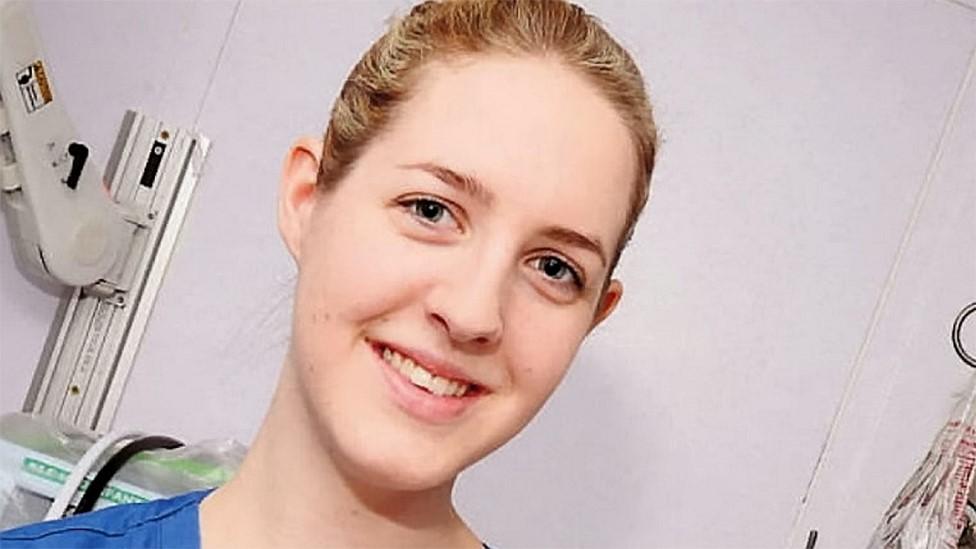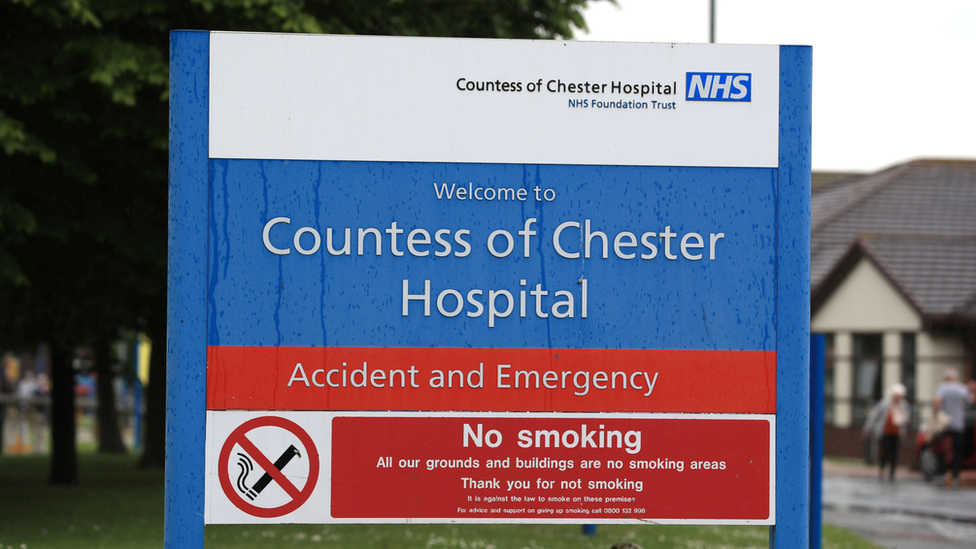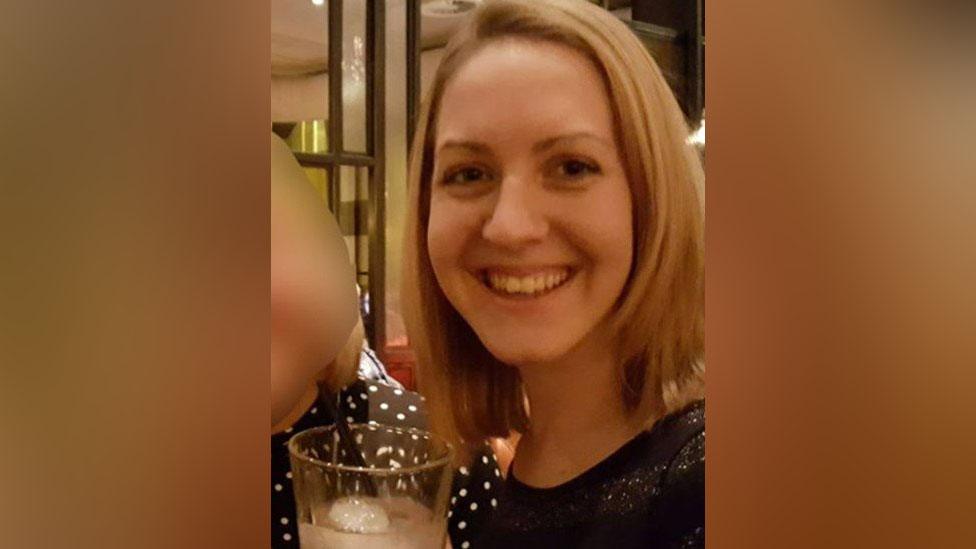Lucy Letby: Baby injected with fatal dose of air, jury told
- Published

Lucy Letby denies murdering and attempting to murder babies on a neo-natal ward
A baby was injected with a fatal dose of air less than 24 hours after his brother died in similar circumstances, the trial of Lucy Letby has heard.
Ms Letby is accused of killing the boy, referred to as Child P, the day after allegedly murdering his triplet brother, Child O, in June 2016.
The nurse is charged with murdering seven babies and attempting to murder 10 others between 2015 and 2016 at the Countess of Chester Hospital.
The 33-year-old denies all the charges.
Medical expert Dr Dewi Evans told Manchester Crown Court that in his view an "excessive" amount of air detected in Child P's bowel on the evening of 23 June could only be explained by "additional air" having been injected.
The court heard that the air "destabilised the baby" and he was unable to take feeds on the evening of 23 June.
The infant eventually stabilised, but by 09:50 BST on 24 June he collapsed and required breathing support.
Child P collapsed several more times on 24 June, before being pronounced dead at 16:00 after 45 minutes of unsuccessful resuscitation attempts, the jury was told.

The nurse is accused of carrying out the attacks at Countess of Chester Hospital
Dr Evans, who was asked to review the case by Cheshire Police in 2017, told the court that in his view, the collapses were consistent with an "additional amount of air being given to this baby during the morning of 24 June".
He added: "This additional air is what splinted the diaphragm and caused the collapse."
Ben Myers KC, defending, accused Dr Evans of trying to make his evidence fit to "when Ms Letby was on duty".
The expert refuted the suggestion, saying he "cannot be accused of putting anyone in the frame" as his evidence also related to the night shift before Ms Letby was working.
Mr Myers said the medic had "invented" an "extra dollop of air" on the morning of 24 June to "take his theory over the line".
"I haven't invented any dollops," Dr Evans responded.
He said his conclusions were consistent with the sequence of events reported by doctors and nurses working that day.
Dr Sandie Bohin, who reviewed Dr Evans' findings, said Child P's numerous collapses were "striking and out of the ordinary".
She told the court that she "can't explain" why the infant collapsed on 24 June and "can't think of any naturally occurring phenomenon" that would result in his death.

Lucy Letby, originally from Hereford, denies all the charges against her
In her view, she told the jury, "air was injected into his nasogastric tube which subsequently caused his initial collapse".
In cross examination, Mr Myers quoted Dr Bohin's report on Child P in which she had noted there was "unacceptable delays" in the treatment of a pneumothorax, which is a collection of air outside the lung.
Dr Bohin agreed that "questions need to be asked of the clinicians involved" in Child P's ventilation strategy that day.
Mr Myers also pointed out that Dr Bohin had noted an "unusual" starting dose of adrenaline given to Child P on the morning of 24 June.
The court earlier heard that a "mistake was made" by the prescriber of adrenaline on 24 June and that Child P was administered with "precisely double" the intended dose.
But Dr Bohin said: "I don't think it had any adverse effect, in that the infusion was started after [Child P] had at least two of his collapses".
The trial continues.

Why not follow BBC North West on Facebook, external, Twitter, external and Instagram, external? You can also send story ideas to northwest.newsonline@bbc.co.uk, external
Related topics
- Published22 March 2023

- Published21 March 2023

- Published20 March 2023

- Published16 March 2023

- Published15 March 2023

- Published14 March 2023

- Published8 March 2023
